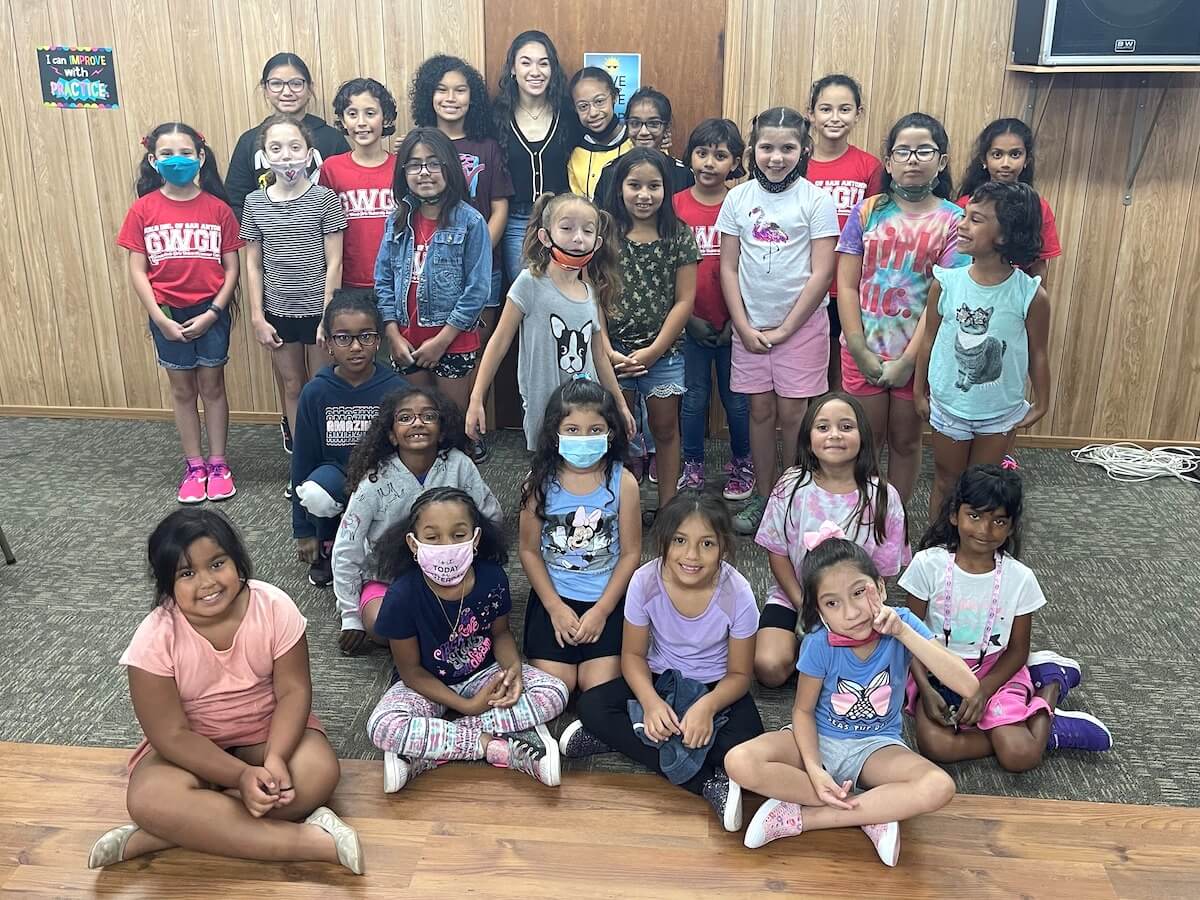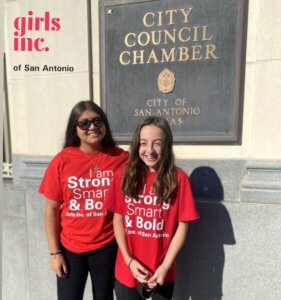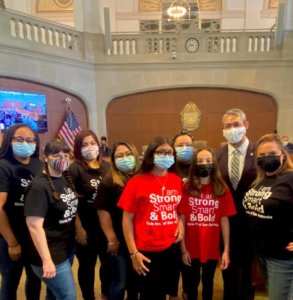
Through Girls Inc. of San Antonio, a nonprofit that empowers girls to reach their potential, she’s already been pursuing her passion — cybersecurity — as a high school student and teaching kids about the importance of cybersecurity and digital safety, starting with elementary school students.
“You’d think that kids grow up on technology, and so they would be more aware of scams,” said Amelia, who’s a senior at Smithson Valley High School. “They aren’t always.”
She warns against downloading apps from an app store if they’re not verified. You also shouldn’t click on links from random people who send you emails, nor buy things from the first website you find whenever an offer looks too good to be true.
Amelia’s interest in STEM (which stands for science, technology, engineering and mathematics) has been amplified since she was in middle school when she enrolled in Girls Inc.’s Eureka program.
The San Antonio chapter of Girls Inc. launched in 2004 and serves girls ages 6 to 18 throughout the region with programs that help them “overcome barriers that prohibit them from achieving their personal, educational, and career goals,” according to their website.
Their mission is to inspire girls to become strong, smart and bold, while introducing them to positive role models either in the form of guest speakers or long term mentors.
“Very often girls are not encouraged to be confident in themselves,” said Lea Rosenauer, president and CEO of Girls Inc. of San Antonio. “They’re not encouraged to take pride in what they do. They’re not encouraged to make mistakes.”
The local nonprofit purposefully recruits girls who have have experienced deeper challenges, Rosenauer said. Fifty one percent of girls enrolled in Girls Inc. programs come from households making less than $30,000 a year.
Girls who grow up in poverty sometimes grow up before their time—babysitting a younger sibling, working a part-time job. Life prevents them from being a kid who can explore different interests and work on their career path.

Girls Inc at the Day of the Girl Proclamation Reading
Camps during Spring Break and summer are geared toward younger girls and have themes such as art and animals. For older kids, there are programs such as Eureka, which immerse students in STEM from middle school through high school graduation, with the intent to dismantle stereotypes about science not being for girls.
Since she’s been enrolled in Eureka, Amelia has completed two internships and already knows that she wants to attend the cybersecurity school at the University of Texas at San Antonio.
“Cybersecurity is basically just the work that professionals do to make sure that people aren’t hacked,” she explains. “That’s a very hot topic right now … hacking into the government, so that you don’t get scammed and that kind of thing.”
Her mentor at Girls Inc., Belen Plasencia, serves as the leadership program manager and said Amelia has the ability to simplify complex topics for a broader audience, a skill she’s seen Amelia get really good at in her years in Eureka.
‘That’s where the magic happens,” Plasencia said. “And it’s a joy to do this work, because they take me on a ride, right? They take us on a journey. … It isn’t just always about STEM. It’s about giving girls the tools, and giving them confidence.”

Girls Inc at the Day of the Girl Proclamation Reading
After she’s done at UTSA, Amelia wants to “bridge the gap between people who are very technologically based and people who are more business based.”
“I want to be like the liaison who can explain why this program is really good … so you should invest in this program,” she said, “… kind of like an interpreter between people who don’t understand cybersecurity and people who understand too much about cybersecurity.”
Amelia credits Girls Inc. with building her excitement and interest in cybersecurity, and with creating a clear career path. But also, she said, the organization has built up her confidence as a young woman.
“Through those opportunities, you build confidence,” she said.
“You are allowed to interview people. You’re allowed to ask questions in a less formal setting so that you start to learn that everyone around you–even if they’re amazing–they’re still people at the end of the day, and you can talk to them.”
“And most of the time, they want to help you and they want to talk about their stories in the hopes that it’ll help you succeed.”